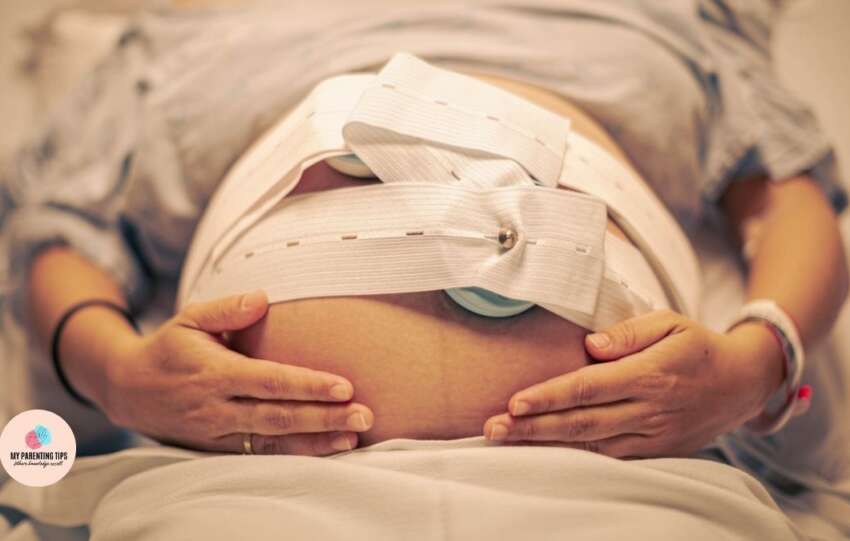Symptoms of Pregnancy: What Happens First

“This article helps women identify possible pregnancy signals even before a missed period by describing the early symptoms of pregnancy, including fatigue, nausea, and breast tenderness.”
One thrilling and emotional period is wondering whether you might be pregnant. Knowing the indicators to search for may help you to some extent clarify things as your body changes. Early on recognition of the Signs of Pregnancy enables you to start looking after your future child and yourself from the outset. Here is a list of the most often occurring early symptoms together with explanations for them and expectations.
Early Signs of Pregnancy
Though they may first be minor, pregnancy symptoms might show up as early as one week after conception. Not every woman goes through all of these symptoms, and their degree will vary.
Let’s review the most often occurring early signs:
1. Bleed from an Implant and Cramps
Known as implantation bleeding, mild spotting or cramps is one of the very earliest signs of pregnancy. Usually six to twelve days following conception, this happens when the fertilized egg hooks itself to the uterine lining. Usually milder than a period, implantation bleeding may show up as pink or brown spots.
These cramps or spotting could just last one day or two. Should you find yourself experiencing this, it could be a first sign of pregnancy.
2. Breast Alterations
Common very early indications of pregnancy within the first week or two are changes in breast tenderness. Your breasts might seem more sensitive to touch, fuller, heavier, or otherwise changed. Hormonal changes following conception bring about these changes as your body gets ready for nursing.
Because of higher blood flow, your nipples might also darken and you might find more noticeable veins on your breasts. This can be among the first indicators even before a missing cycle.
3. Wearyness and Tiredness
One of the first complaints of pregnancy is commonly noted as being unusual tiredness or weariness. Higher quantities of progesterone the body generates help the pregnancy but also have a sleepy effect. Your body also starts to work harder to maintain a growing embryo, which can cause tiredness.
During the first trimester, fatigue could persist or get worse; so, it is imperative to pay close attention to your body and relax when needed.
4. Morning Sickness and Nausea
Though it’s more prevalent around the sixth week, some women experience nausea within the first two weeks of pregnancy. Often referred to as morning sickness, this nausea can strike at any time of day rather than only in the morning. One theory holds that nausea is triggered by higher HCG levels.
Eat little, frequent meals, and keep hydrated if you are feeling sick. Though some may have it longer, nausea usually passes around the conclusion of the first trimester.
5. Aversions or Food Cravings
Among the very early indication of pregnancy, it can be can be sudden dietary cravings or aversions very early signs of pregnancy 1 week after conception. While new appetites develop, certain foods you once loved may appear unappealing. Taste and scent sensitivity changes might also help to create these new preferences.
Normal and usually connected to hormonal shifts are these dietary aversions and urges. Managing these symptoms can be achieved by eating balanced meals and allowing occasional indulgence of desires.
6. Frequent Excretion
Should your frequent bathroom visits indicate early pregnancy, this could be a sign of it. Rising hCG levels and greater blood supply to the kidneys drive more frequent urination. Beginning one week following conception, this may last all through pregnancy while the uterus develops.
Although frequent urination can be an unanticipated shift, staying hydrated is vital even if it means more toilet trips.
7. Changing Moods
Early pregnancy often brings emotional changes brought on by hormone swings. You might be more emotional, moodier, or quickly agitated. Though maybe more extreme, these mood swings resemble those felt before a period.
Knowing that mood swings are a natural reaction to hormonal fluctuations will help you better control these emotions. Emotional release can come from journaling or conversations with someone you trust.
8. Constipation and Bloating
Rising progesterone levels can cause constipation and bloating by slowing down the digestive tract. These symptoms could feel like premenstrual bloating and can start really early in pregnancy. These symptoms can be lessened by drinking lots of water, eating meals high in fiber, and modest physical exercise.
Understanding Pregnancy Symptoms Before a Missed Period
Though usually the first obvious indication is a missed period, some women show signs of pregnancy before missed period. These include the little variations mentioned above that of tiredness, breast sensitivity, or nausea. Although a missing period usually indicates the likelihood of pregnancy for most women, these symptoms can be seen in the first few weeks of conception.
Taking a home pregnancy test at the time your period is due will help you determine whether you are experiencing these symptoms and suspect pregnancy.
How to Monitoring Early Pregnancy Symptoms
If you want to identify early pregnancy symptoms, tracking symptoms can help you. Log everyday changes in your body using a pregnancy tracking app or a diary. Noting symptoms include nausea, breast soreness, or tiredness will enable you to spot trends and choose whether to schedule a pregnancy test.
When should I Get Tested for pregnancy?
From the day your missed period starts, most pregnancy tests are accurate. Since certain early detection tests find low levels of hCG, they may, nevertheless, produce findings sooner. If at all possible, wait until after your missed period; taking tests too early can result in a false negative.
Should your test come back positive, make an appointment with a healthcare professional to verify and start prenatal treatment.
Conclusion
Knowing the early pregnancy symptoms can enable you to recognize changes in your body and get ready for the trip ahead. Although every pregnancy is different, identifying symptoms like nausea, breast soreness, or tiredness could give early hints before a missed period. Whether or whether you go through all of these symptoms, paying attention to your body and, if needed, running a pregnancy test will provide comfort of mind and a better knowledge of what is happening.
Disclaimer
This article is for general informational purposes only and is not a substitute for professional medical advice. Please consult your healthcare provider for personalized guidance on early pregnancy symptoms and care.



